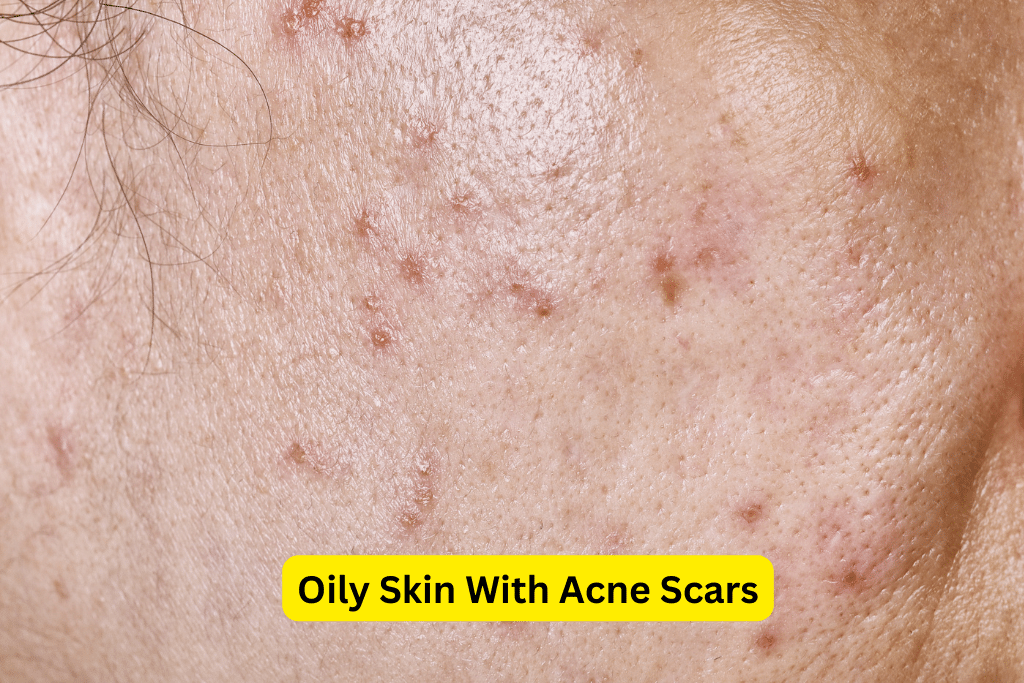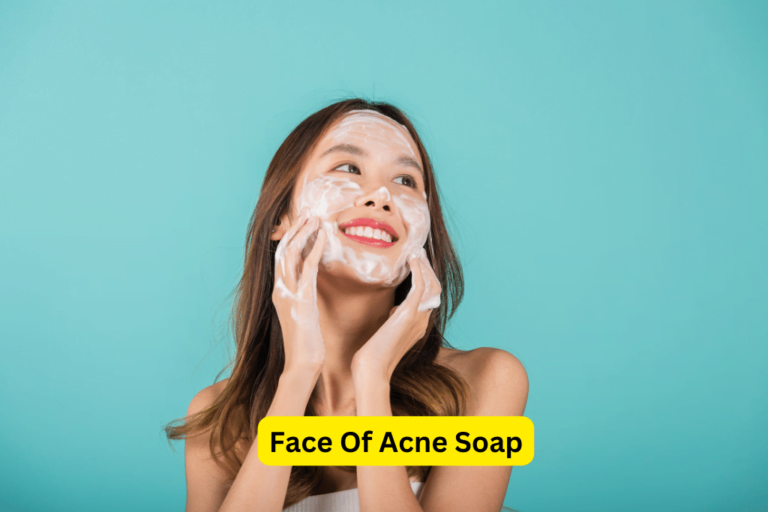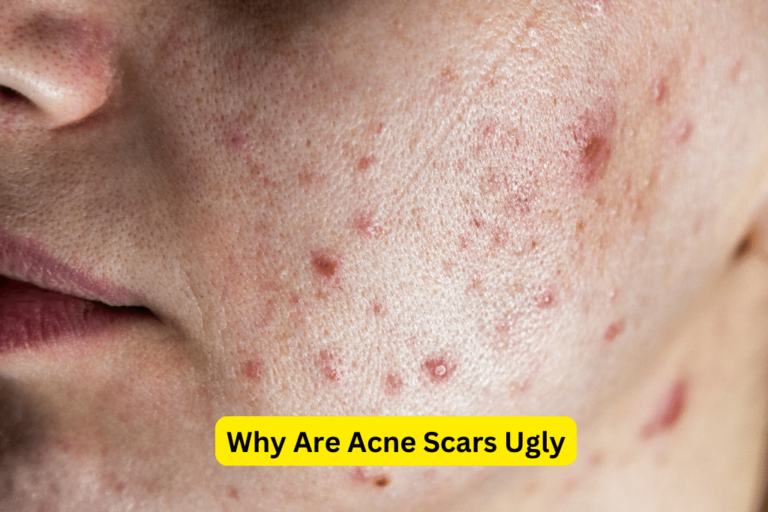Effective Methods for Oily Skin & Acne Scar Treatment
Oily Skin With Acne Scars
Oily skin and acne scars can be a frustrating combination. Oily skin is characterized by excessive sebum production, leading to greasy and shiny skin. Acne scars, on the other hand, are the remnants of past acne breakouts that leave behind marks or indentations on the skin. Understanding the causes, effective treatments, and prevention methods for oily skin with acne scars is crucial in order to manage and improve the appearance of the skin.
Understanding Oily Skin
Oily skin is a skin type that produces excessive sebum or oil. This is due to various factors such as genetics, hormonal imbalances, and environmental factors. Oily skin is characterized by enlarged pores, a shiny appearance, and a tendency to develop acne and blackheads. Factors that aggravate oily skin include humidity, heat, stress, and certain skincare products.
Acne Scars: Types and Formation
Acne scars can be categorized into different types, including icepick scars, rolling scars, and boxcar scars. These scars are formed when the skin’s natural healing process is disrupted, leading to damage to the collagen fibers in the skin. Oily skin can increase the chances of developing acne scars because excess oil can clog pores and cause inflammation, leading to acne breakouts that may result in scarring.
Managing Oily Skin and Acne Scars
Skincare Routine for Oily Skin
A consistent and effective skincare routine is essential for managing oily skin and preventing acne scars. The following steps should be included in a skincare routine for oily skin:
- Cleansing: Use a gentle cleanser twice a day to remove excess oil, dirt, and impurities from the skin.
- Toning: Use a toner to balance the pH levels of the skin and remove any remaining residue from the cleanser.
- Moisturizing: Even oily skin needs hydration. Use a lightweight, oil-free moisturizer to keep the skin nourished without adding extra oil.
- Exfoliating: Regular exfoliation helps unclog pores and remove dead skin cells. Opt for gentle exfoliants that won’t irritate the skin.
- Sun Protection: Always apply a broad-spectrum sunscreen with an SPF of 30 or higher to protect the skin from harmful UV rays.
Effective Treatments for Acne Scars
There are various treatments available for acne scars on oily skin:
- Topical Creams and Gels: Prescription-strength creams and gels containing ingredients such as retinoids and hydroquinone can help improve the appearance of acne scars.
- Chemical Peels: Chemical peels involve the application of a chemical solution to the skin, which helps exfoliate the top layer and stimulate the growth of new, healthier skin.
- Microneedling: Microneedling involves using tiny needles to create controlled micro-injuries on the skin, promoting collagen production and improving the appearance of acne scars.
- Laser Therapy: Laser treatments target the deeper layers of the skin to stimulate collagen production and improve the texture and appearance of acne scars.
Professional Skincare Procedures for Acne Scars
In addition to the above treatments, professional skincare procedures can also be effective in treating acne scars:
- Microdermabrasion: Microdermabrasion is a non-invasive procedure that uses a diamond-tip wand to gently exfoliate the top layer of the skin, reducing the appearance of acne scars.
- Dermabrasion: Dermabrasion is a more intensive procedure that involves the use of a rotating brush or diamond wheel to deeply exfoliate the skin and improve the appearance of acne scars.
- Cryotherapy: Cryotherapy involves freezing the scar tissue with liquid nitrogen, causing it to slough off and gradually fade.
Expert Tips for Managing Oily Skin and Acne Scars
Managing oily skin and acne scars requires a comprehensive approach. Here are some expert tips:
- Keep your skincare routine simple: Stick to gentle and non-comedogenic products that won’t clog pores or irritate the skin.
- Avoid touching your face: Touching your face can transfer bacteria, dirt, and oil, leading to breakouts and worsening acne scars.
- Manage stress: Stress can aggravate oily skin and acne breakouts. Practice stress management techniques such as meditation, deep breathing, and exercise.
- Change your pillowcase regularly: Dirty pillowcases can transfer bacteria and oil to your face while you sleep, exacerbating acne breakouts.
Preventing Acne Scars on Oily Skin
Maintaining a Healthy Skincare Routine
A healthy skincare routine is crucial in preventing acne scars on oily skin. Follow a consistent routine that includes cleansing, toning, moisturizing, exfoliating, and sun protection.
Avoiding Triggers and Irritants
Identify and avoid triggers and irritants that can worsen acne breakouts and increase the chances of scarring. Common triggers include certain skincare products, harsh cleansers, and irritants like pollution or cigarette smoke.
Minimizing Picking and Squeezing
Resist the urge to pick or squeeze your acne. Picking at acne lesions can lead to inflammation and increase the risk of scarring. Instead, seek professional guidance for safe and effective extraction techniques.
Appropriate Makeup Usage
Choose non-comedogenic makeup products specifically designed for oily and acne-prone skin. Avoid heavy, oil-based formulations that can clog pores and worsen acne breakouts.
Visiting a Dermatologist for Treatment and Advice
If you’re struggling with oily skin and acne scars, it’s advisable to consult a dermatologist. They can assess your skin condition, recommend tailored treatments, and provide expert advice on managing oily skin and preventing acne scars.
Recommended Products for Oily Skin with Acne Scars
Facial Cleansers and Toners
When choosing cleansers and toners for oily skin, look for products that are specifically formulated to control oil production and fight acne. Ingredients like salicylic acid and tea tree oil can help unclog pores and reduce inflammation.
Moisturizers and Sunscreens
Even oily skin needs hydration and sun protection. Opt for lightweight, oil-free moisturizers and sunscreens that won’t clog pores or cause breakouts. Look for products with an SPF of 30 or higher to protect your skin from sun damage.
Spot Treatments for Acne Scars
Spot treatments can help target specific acne scars. Look for products containing ingredients like niacinamide, vitamin C, and rosehip oil, which can promote healing and reduce the appearance of scars.
Makeup Products for Oily and Acne-Prone Skin
Choose makeup products that are oil-free, non-comedogenic, and specifically formulated for oily and acne-prone skin. Matte or mineral foundations can help control oil and provide coverage without clogging pores.
Lifestyle Changes for Better Skin Health
Diet and Nutrition Tips
Eating a balanced diet rich in fruits, vegetables, whole grains, and lean proteins can help improve overall skin health. Additionally, avoiding sugary and processed foods can reduce inflammation and promote clearer skin.
Importance of Hydration
Drinking an adequate amount of water helps keep the skin hydrated and flushes out toxins. Aim for at least 8 glasses of water per day to maintain optimal skin health.
Stress Management Techniques
Chronic stress can exacerbate oily skin and acne breakouts. Engage in stress-reducing activities such as yoga, meditation, or hobbies that help you relax and unwind.
Quality Sleep and Its Impact on Skin
Getting enough quality sleep is essential for skin health. Lack of sleep can disrupt hormonal balance, increase inflammation, and worsen acne breakouts. Aim for 7-8 hours of uninterrupted sleep each night.
Final Thoughts
Oily skin with acne scars can be a challenge, but with the right understanding, skincare routine, and treatment options, it is possible to manage and improve the appearance of the skin. Remember to consult a dermatologist for personalized advice and treatment plans tailored to your specific needs. By following expert tips, maintaining a healthy skincare routine, and making lifestyle changes, you can achieve clearer and more radiant skin.









